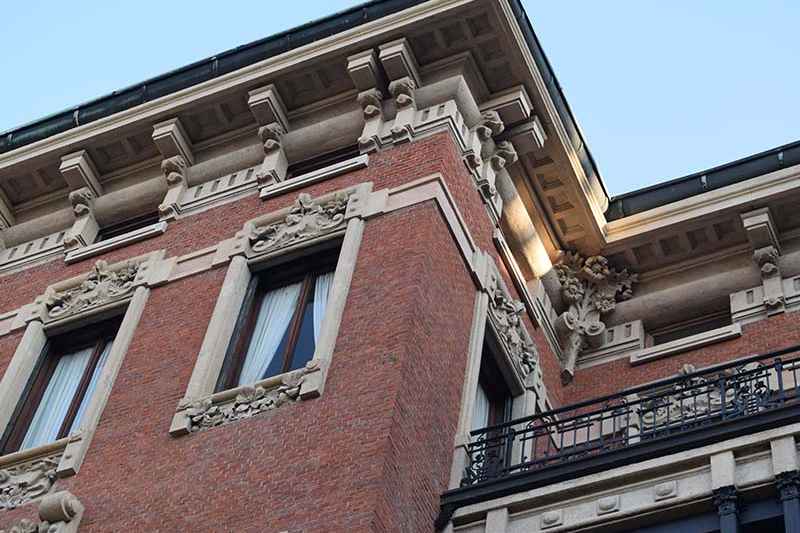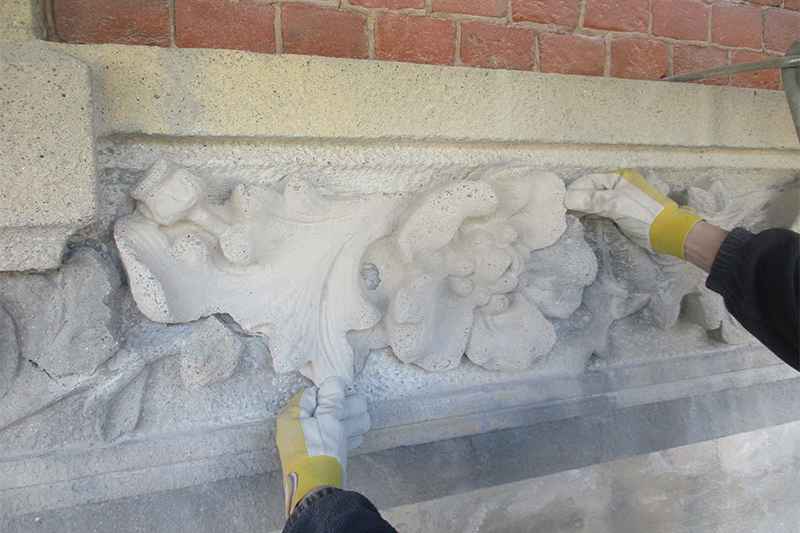Restoration & decoration
Façade restoration of Palazzo Castiglioni
Overview
Palazzo Castiglioni

A BIT OF HISTORY
Palazzo Castiglioni is an emblematic example of Art Nouveau architecture in Milan. Commissioned by Ermenegildo Castiglioni, a wealthy Milanese industrialist, it was designed by Giuseppe Sommaruga, a leading figure of the Italian Liberty style. Construction began in 1901 and was completed in 1904.
The building is distinguished by its façades richly decorated with naturalistic and symbolic motifs, with cement reliefs and wrought iron elements reflecting Liberty aesthetics. At the time, some bold sculptures sparked controversy among Milanese citizens, but they reflect the innovative and avant-garde spirit of Italian Art Nouveau.
Over time, the Palazzo has maintained its prestigious role in Milan’s urban landscape, now housing offices and institutional spaces while remaining an important example of the city’s architectural heritage.
PROJECT
The project involved the brick facing, refined decorative cements characterized by fine veins with medium or coarse aggregates imitating ceppo d’Adda, and wrought iron elements.
The rich decorative elements inspired by naturalistic motifs, made with a cement-based binder and heterogeneous aggregates, both carbonated and silicated, were in an advanced state of deterioration. Some molded parts showed detachments and gaps due to water infiltration that had oxidized iron reinforcements and support plates, causing cracks and fractures in the cement and posing a risk of falling.
Further Information:
Restoration
Repair Steps

Implementation
After mapping the degraded areas, restorers removed and cataloged parts and fragments of decorative reliefs that were detaching, mainly concentrated in the floral cornice above the large three-light window of the projecting body, on the Palazzo Bovara side.
The façade of cement and brick was then cleaned using a biocide, manual washing with surfactants in aqueous solution, and mechanical cleaning by controlled projection of 120-mesh garnet or calcium carbonate to remove encrusted deposits and thick black crusts.
Cleaning methods were not applied in a standardized way but assessed case by case to best preserve the surfaces and the original ochre finish, still well preserved in certain areas.
Key Information
Duration of the works
18 month
Contracting authority
Union Confcommercio Imprese per l'Italia
Project Management
Arch. Mariacristina Sironi
Company
Studio Restauri Formica S.r.l
Discover
Discover all our products
Discover our product
Derived from a unique deposit located in the Chartreuse massif, PROMPT natural cement is an exclusive product of the Vicat Group.
Documentation
Find all our brochures, site sheets, application sheets and video tutorials.



